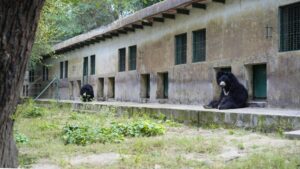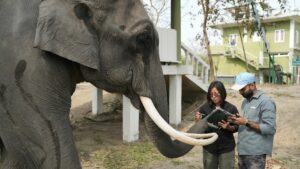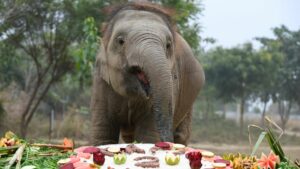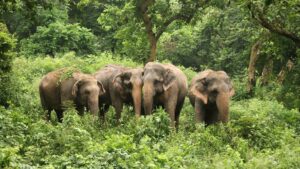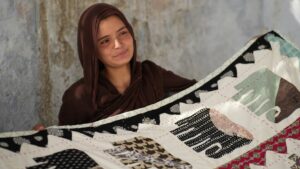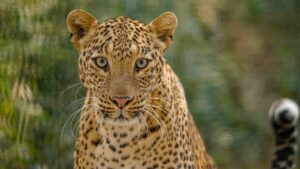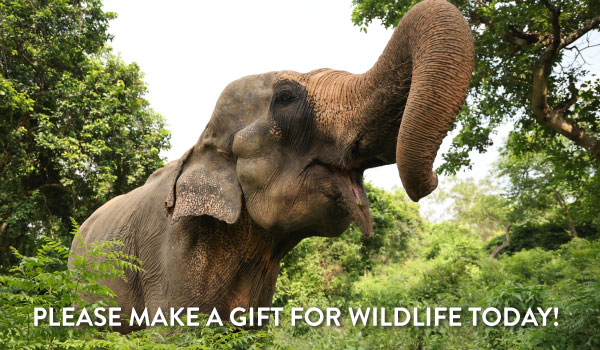Refreshing winds of autumn brought an exciting opportunity for Wildlife SOS to share its pioneering work in wildlife rescue and veterinary care on an international stage at the 57th Annual Conference of the American Association of Zoo Veterinarians (AAZV). Founded in 1946, AAZV has long been a leading global forum bringing together veterinarians, scientists, and conservationists dedicated to advancing wildlife health and welfare. Since 1968, its annual conference has provided a unique platform for continuing education in zoo and wildlife medicine, while fostering collaboration among professionals worldwide.
This year, the conference unfolded in Kansas City, Missouri, U.S., from August 23-29, drawing experts from 21 countries. This remarkable congregation of veterinary professionals became a vibrant and inspiring hub where science, conservation and compassion for wildlife came together. Representing India, Dr. Ilayaraja Selvaraj, Deputy Director of Veterinary Services with Wildlife SOS, was honoured as a Murray Fowler Scholarship awardee, presenting the stories of rescued Asian elephants, bears and leopards to a global audience.
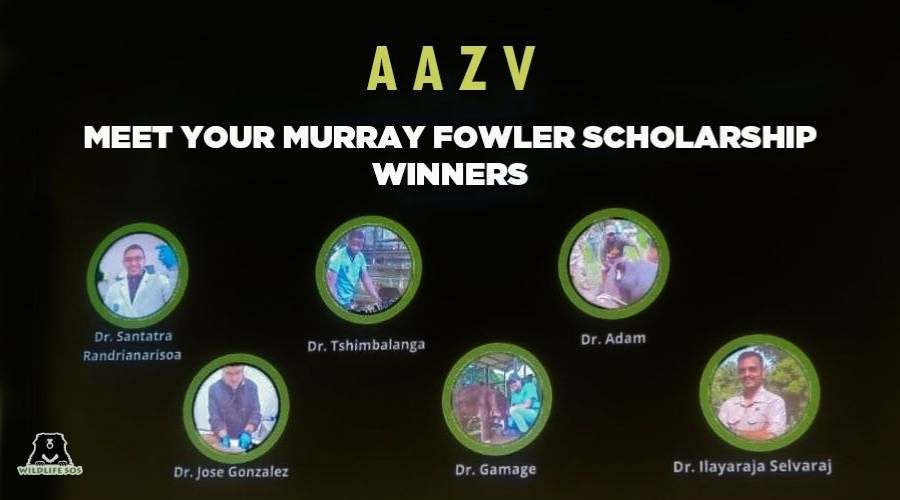
Shared Wisdom Rooted in Relevance
The conference brimmed with energy, collaboration and a lively exchange of ideas. Alongside AAZV, several partner veterinary groups joined in, creating a truly multidisciplinary approach towards wildlife health. Internationally acclaimed veterinarians, researchers and representatives of zoological institutions and conservation organisations brought their expertise, with their anecdotes weaving together a memorable global dialogue on the future of animal care.
For Wildlife SOS, the gathering held special significance. The 2025 theme, ‘Leveraging Integrated Health Strategies to Address Emerging Challenges in Human-Wildlife Co-existence and Ecosystem Health’, echoed the very principles the organisation has championed for decades. Wildlife SOS follows a holistic approach to reflect the concept of One Health that recognises the deep connections between human, animal and environmental health. From mitigating human-wildlife conflict to providing care for elephants, leopards, and bears, Wildlife SOS integrates animal welfare with ecosystem health and human coexistence. Through his presentation, Dr. Ilayaraja highlighted how rescue, rehabilitation, research and community outreach can converge to solve some of the most complex conservation challenges.
India’s Wildlife Stories on the Global Stage
In his talk, Dr. Ilayaraja introduced Wildlife SOS’s multifaceted conservation journey in India to the global audience. He shed light on:
- Rescuing and rehabilitating elephants who had endured years of neglect, malnutrition and abuse
- Ending the cruel tradition of ‘dancing’ bears, while creating alternative livelihoods for the communities involved
- Deploying Rapid Response Units to handle human-wildlife conflicts, especially leopards straying into villages or cities
- Providing lifelong veterinary care and enrichment for rescued animals, ensuring they not only survive but thrive
The model drew appreciation and acclaim, inspiring the esteemed audience to incorporate and adapt this approach in their own set ups.
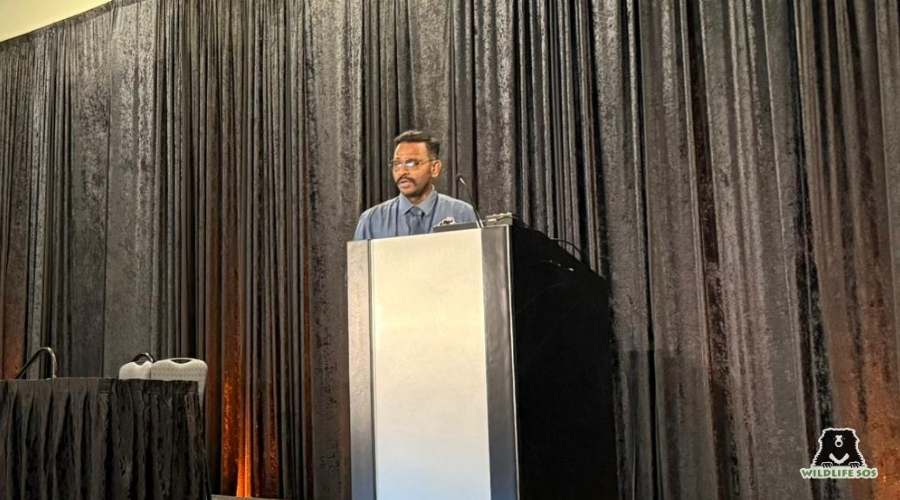
Learning from the World
While representing India was a proud milestone, Dr. Ilayaraja also immersed himself in the learning opportunities the conference offered. Talks on Elephant Endotheliotropic Herpesvirus (EEHV) vaccine research, non-invasive diagnostic tools and advancements in zoo animal anaesthesia provided valuable insights for strengthening wildlife healthcare in India.
Sessions on disease surveillance networks and microbiome research were particularly significant. They shed light on the growing importance of preventive care and early disease detection, showing how animal welfare can be enhanced through non-invasive methods. These innovations could transform wildlife veterinary science by reducing stress on sensitive species and enabling more humane medical practices.
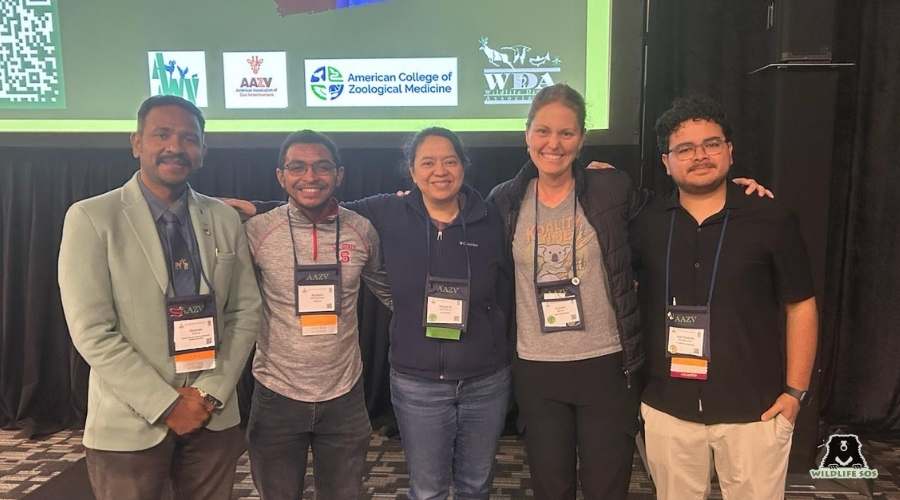
The knowledge gained in Kansas City is already being woven into Wildlife SOS programmes under the guidance of Dr. Ilayaraja Selvaraj. By combining these new insights with its existing expertise in rescue, rehabilitation and community outreach, Wildlife SOS aims to set new benchmarks for wildlife welfare in India.
Your support can help us carry this momentum forward. Stand with Wildlife SOS as we blend compassion with science to protect India’s wildlife and create a future where every animal lives free from cruelty by donating now.
Feature image: Wildlife SOS

